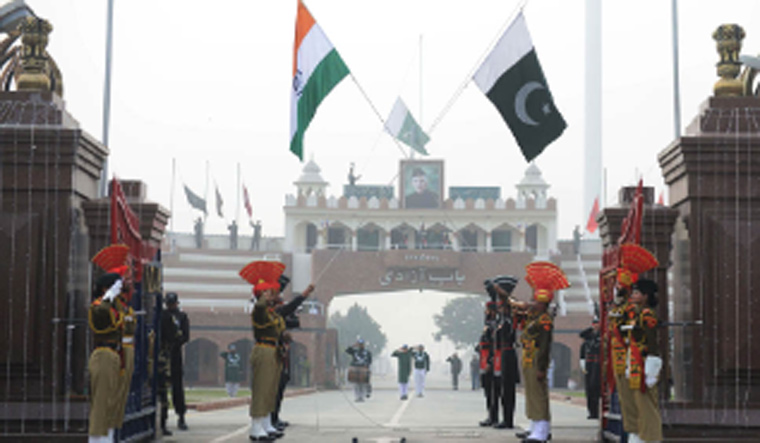Indian officials have crossed the border into Pakistan to talk about terror. A three-member legal team arrived in Islamabad on Wednesday to attend a regional meeting of the Shanghai Corporation Organisation for legal experts.
“The legal experts will discuss terrorist threats facing the region and the ways and means to enhance counter-terrorism cooperation between SCO member states,'' a press release issued by the Pakistan Foreign Office stated. The RATS (Regional Anti-Terrorist Structure) aims to promote better coordination among members on terrorism.
This is the first time that such a meeting is taking place in Pakistan. India, however, is not the only country to send a delegation. There will be representatives from Russia, Tajikistan, Kyrgyzstan, China and Uzbekistan.
But, for once, there will be no pussyfooting around terror with India and Pakistan bound—as the meeting mandates—to create a framework to reduce terrorism. This meeting comes close on the heels of Defence Minister Nirmala Sitharaman's statement that any comment calling for peace from Pakistan will be taken seriously. Sitharaman was reacting to a suggestion made by Pakistan Army Chief General Qamar Bajwa that the Kashmir issue could be solved peacefully through talks.
And to add to the almost-cordial atmosphere, India has finalised a team of doctors to visit Pakistani jails. Minister of External Affairs Sushma Swaraj in October 2017 had mooted an idea, as a way to break the ice, to move forward on 'humanitarian issues'. On the agenda was the possible release of elderly prisoners, women, children and mentally unsound patients lodged in Pakistani jails.
The two countries had agreed to move forward on this proposal in March, but it has taken almost two months for a panel of doctors to be finalised. While the recent events do suggest a slight softening of relations, it may be too early to believe that peace is round the corner.
India, it is believed, is playing the waiting game to see what happens in the general elections in Pakistan in July and seems unwilling, at the moment, to engage seriously with Islamabad. And even the Track-II diplomacy initiatives like Neemrana Dialogue—held earlier this month in Islamabad—have failed to gain any traction.


